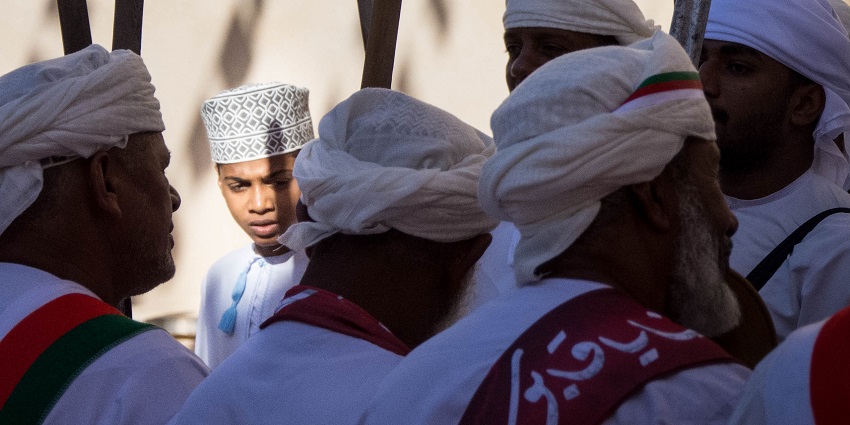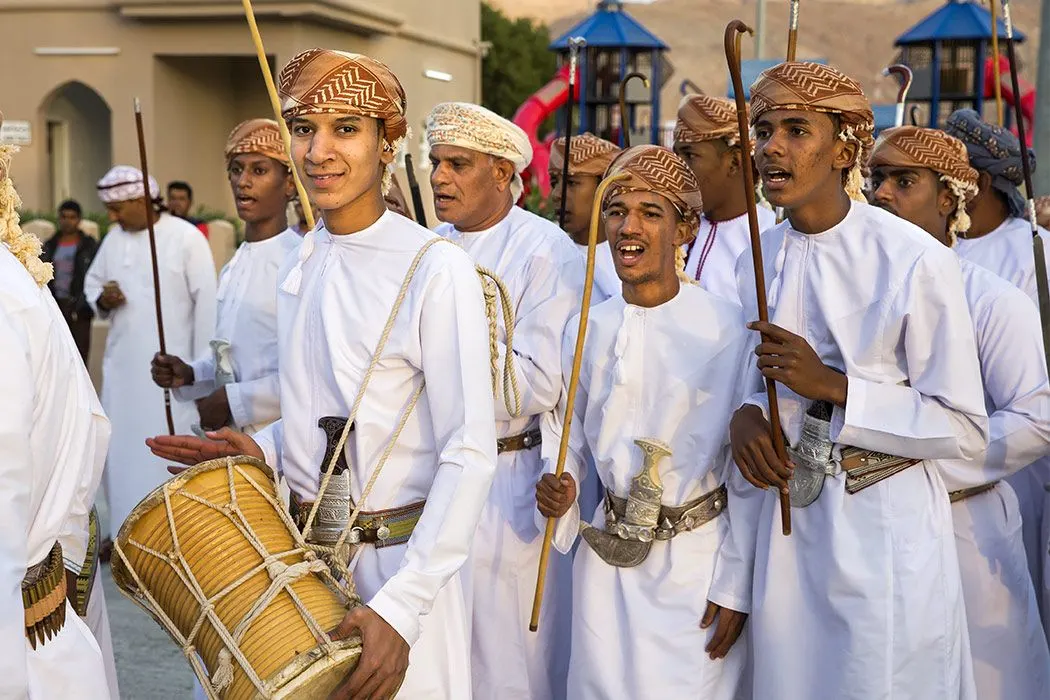The Essence of Omani Culture
Celebrating Oman’s Traditional Festivals with Pride and Joy,Oman, a country known for its breathtaking landscapes and warm hospitality, is equally admired for its deeply rooted traditions and festivals. The people of Oman celebrate their cultural identity through vibrant events that blend spirituality, heritage, and community. These festivals are not just days on a calendar but moments that reflect centuries of history, beliefs, and values. For locals, they are reminders of unity, while for visitors, they offer a window into the nation’s soul.
Omani festivals bring people together, whether in the bustling cities or quiet villages, creating a sense of belonging. They showcase the nation’s rhythm of life, from spiritual devotion to colorful arts and mouth-watering feasts. To understand Oman fully, one must experience its festivals, where the past and present gracefully intertwine.
Eid Al Fitr: A Festival of Gratitude
Eid Al Fitr marks the end of the holy month of Ramadan, and in Oman, it is celebrated with joy and thanksgiving. Families gather early in the morning for special prayers, dressed in their finest traditional attire. The aroma of freshly prepared dishes fills homes as women prepare elaborate meals, often including traditional sweets like halwa, dates, and spiced coffee.
The highlight of Eid Al Fitr is the spirit of giving. Families share food with neighbors, distribute gifts to children, and extend kindness to those in need. Villages and towns come alive with festivities, markets buzz with activity, and the atmosphere is filled with laughter. The essence of this festival lies in gratitude, forgiveness, and unity, making it one of the most cherished celebrations in Oman.
Eid Al Adha: Honoring Faith and Sacrifice
Eid Al Adha, also known as the Festival of Sacrifice, is another important religious celebration in Oman. It commemorates the story of Prophet Ibrahim’s devotion and faith. Families gather for prayers, after which the ritual sacrifice is performed, and the meat is distributed among relatives, friends, and the less fortunate.
Omani households open their doors to guests, offering traditional dishes that highlight the country’s culinary heritage. Beyond the meals, Eid Al Adha emphasizes values of charity, family bonds, and spiritual reflection. It is a time when communities come together, reaffirming their shared faith and sense of duty toward one another.

National Day: Pride in Oman’s Journey
Oman’s National Day, celebrated every year in November, is a grand tribute to the nation’s history, progress, and leadership. Streets are decorated with flags, lights, and patriotic displays. Schools, businesses, and households participate in the celebration with pride, honoring the country’s independence and development under wise leadership.
The day is marked by parades, fireworks, cultural performances, and public gatherings. Traditional music and dances echo through towns, while the younger generation embraces the occasion as a reminder of the sacrifices and achievements of their ancestors. National Day reflects unity, loyalty, and gratitude, making it one of the most anticipated events in the Omani calendar.
Muscat Festival: A Cultural Showcase
The Muscat Festival is a unique event that highlights Oman’s diverse traditions, arts, and modern creativity. Held annually, it attracts both locals and international visitors. The festival features cultural villages where Omani crafts, clothing, and cuisine are displayed. Folk dances, musical performances, and storytelling sessions bring history and traditions to life.
Children enjoy carnival rides and activities, while food stalls offer a wide variety of dishes from across the Sultanate. The festival provides a platform for artists and craftsmen to share their work, making it an important event for cultural preservation and economic growth. For many, the Muscat Festival is a celebration of the country’s identity, showing how tradition and modernity coexist harmoniously.
Salalah Tourism Festival: A Celebration of Nature
In the southern Dhofar region, the Salalah Tourism Festival is celebrated during the Khareef season when monsoon rains transform the landscape into lush greenery. This festival is a blend of cultural, artistic, and recreational activities. Families travel from across Oman and neighboring countries to enjoy the cool weather, waterfalls, and mountain scenery.
The festival includes traditional music, poetry recitals, handicraft exhibitions, and food fairs. Children are entertained with games and performances, while adults engage in cultural competitions and shopping. The Salalah Tourism Festival is not just about leisure it highlights the importance of Dhofar’s heritage and natural beauty. It is a time when people connect with nature, culture, and community spirit.
Weddings and Local Celebrations
Beyond national and religious festivals, Omani weddings are celebrated like festivals in themselves. They are vibrant, joyous, and deeply rooted in tradition. Weddings often last several days, featuring music, dancing, and feasts. Traditional songs and poetry are performed, while guests wear elegant clothing that reflects the richness of Omani culture.
Local communities also hold celebrations for the harvest, camel racing, and dhow regattas. These events bring together villages and tribes, reinforcing social ties. Every occasion, big or small, is marked with warmth and generosity, which are hallmarks of Omani hospitality.
Traditional Music and Dance in Festivals
No Omani festival is complete without traditional music and dance. Performances often include instruments like drums, tambourines, and the oud, creating rhythms that echo the country’s desert and coastal heritage. The “Al Razha” and “Al Bar’ah” dances are commonly performed during festivals, symbolizing bravery, unity, and joy.
These performances are more than entertainment they are expressions of identity and cultural continuity. Generations of Omanis pass down these art forms, ensuring they remain an essential part of celebrations. Watching these dances or hearing the music during festivals is an unforgettable experience for both locals and visitors.
Omani Cuisine During Festivals
Food plays a central role in Omani festivals, and each occasion features dishes that reflect tradition and hospitality. “Shuwa,” a slow-cooked lamb dish, is often prepared during Eid, while “maqbous,” a spiced rice dish with meat or fish, is served on various occasions. Dates, halwa, and kahwa (Omani coffee) are staples that symbolize generosity and welcome.
Festivals are a time when families come together to cook and share meals. The preparation itself becomes a bonding activity, while the act of sharing food strengthens community ties. For visitors, tasting Omani dishes during festivals is a delightful way to experience the country’s culture firsthand.
The Role of Hospitality
Oman’s festivals are inseparable from its culture of hospitality. Guests are welcomed with warmth, whether they are family members, neighbors, or travelers. Homes remain open during festivals, and visitors are treated with respect and generosity. Sharing meals, offering coffee, and exchanging greetings are integral parts of the celebrations.
This hospitality extends beyond homes to public spaces. Markets, cultural villages, and festival grounds create an atmosphere of inclusivity, where everyone feels like a part of the celebration. For Omanis, hospitality is not just a custom but a reflection of their values, especially during festivals.
The Spiritual Connection
Most Omani festivals have a spiritual element, reflecting the nation’s strong connection to faith. Prayers, charity, and acts of kindness form the foundation of religious celebrations like Eid. Even cultural festivals carry a sense of gratitude for heritage, land, and community.
This spiritual connection ensures that festivals are not only about enjoyment but also about reflection. They encourage individuals to strengthen bonds with family, honor traditions, and contribute positively to society. For many Omanis, these festivals are reminders of their faith and values, guiding their way of life.

Festivals as Bridges Between Generations
Festivals in Oman serve as important bridges between generations. Elders share stories, songs, and rituals with the younger members of the family, ensuring that traditions are preserved. Children learn about their identity through participation in these celebrations, from wearing traditional clothes to joining dances and preparing food.
This intergenerational exchange is vital for cultural continuity. Festivals remind the youth of their roots while giving them pride in their heritage. They also provide opportunities for communities to adapt and modernize traditions without losing their essence.
The Modern Touch in Celebrations
While Omani festivals are steeped in tradition, modern elements have found their way into the celebrations. Fireworks, concerts, and international exhibitions are now part of larger events like National Day and the Muscat Festival. Technology and media have also amplified the reach of these festivals, allowing people across the globe to witness and participate in Omani traditions.
Despite these modern influences, Oman has maintained a balance between progress and tradition. The spirit of its festivals remains rooted in unity, respect, and cultural pride, showing the world how a nation can embrace change while preserving its identity.
Why Omani Festivals Matter
Festivals in Oman are more than cultural events they are expressions of national pride, faith, and unity. They bring joy, strengthen bonds, and keep traditions alive. They also serve as powerful attractions for tourism, drawing people from across the world to witness Oman’s heritage.
For Omanis, festivals are opportunities to pause, reflect, and celebrate together. They remind people of the importance of kindness, gratitude, and community spirit. For visitors, they are moments of discovery, offering a deeper understanding of the Omani way of life.
Conclusion: Embracing the Spirit of Omani Festivals
Oman’s traditional festivals are treasures that connect the past with the present, weaving faith, culture, and joy into the nation’s fabric. From the spiritual celebrations of Eid to the patriotic pride of National Day and the cultural vibrancy of Muscat and Salalah festivals, each event tells a story of resilience and unity.
Experiencing these festivals means more than just attending events it means embracing the heart of Oman. They invite people to celebrate life, honor traditions, and cherish community. Whether you are an Omani or a guest, these festivals leave a lasting impression, reminding us that culture thrives when celebrated with pride and joy.
Do follow Gulf Magazine on Instagram.
Also Read – Oman’s Bold Commitment to Environmental Stewardship and Sustainable Prosperity



